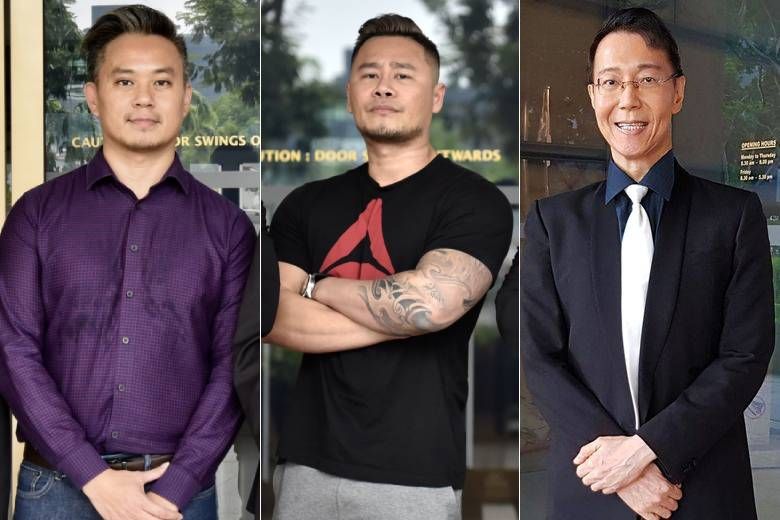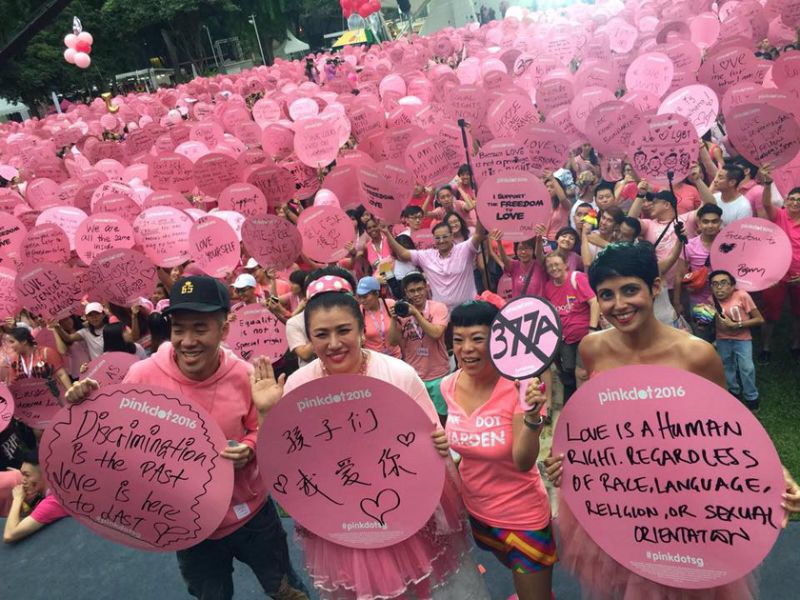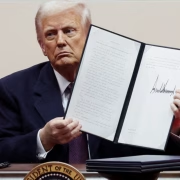Singapore ban on gay sex is unenforceable, top court rules
In a partial victory for gay rights activists in the Southeast Asian island nation, Singapore’s top court declared the country’s law banning gay sex unenforceable, but stopped short of declaring it unconstitutional or overturning it altogether.

Singapore’s law banning men from having sex with men, Section 377A of the Penal Code, was introduced during the British colonial administration in 1938, and remained in effect after independence in 1965. The law bans “gross indecency” between men in public or in private and carries a penalty of up to two years.
However, in 2007, the last time Parliament considered repealing Section 337A, the government announced a “political compromise” between the island’s conservative community and the growing LGBT community and their allies. The law would be retained but not proactively enforced.
In 2018, Singapore Attorney-General Lucien Wong announced that prosecutions of consenting acts in private were “not in the public interest,” while acknowledging that the Public Prosecutor’s office was independent of government and had unfettered discretion to apply the law.

Despite the island’s social conservatism, Singapore has evolved into one of Asia’s biggest queer hotspots, with several gay bars and clubs and an annual Pink Dot gay festival that attracts tens of thousands of attendees.
Three gay men filed a challenge of the law, saying it unconstitutionally discriminated against them as gay men. Their case had initially been dismissed by the High Court in March 2020, which cited a 2014 decision by the Court of Appeal that upheld the law. Their appeal was heard in January last year.
On 28 February, the Singapore Court of Appeal ruled that the government’s policy announcement must be taken in good faith and the political compromise must be allowed to stand.
“[Attorney-General] Wong’s representations have engendered legitimate expectations which deserve legal protection so that the political compromise on S377A may be properly upheld,” the ruling states.
To give the ruling teeth, the judges also ruled that, while Section 377A can remain on the books, the entirely of the law is unenforceable. But the ruling is only in effect until the Attorney-General or his successor provides clear notice that they intend to enforce the law once again and that they believe it is in the public interest.
The ruling made no finding on the question of whether Section 377A was constitutional, finding instead that, because the men who filed the case faced no realistic fear of being prosecuted under the law at present, they lacked standing to challenge it.
While this means that male same-sex intimacy is effectively decriminalized in Singapore right now, any government can simply decide to recriminalize it at any time with little or no debate.
By contrast, if the court ruled the law unconstitutional, it could not be reinstated. Or, if the government repealed the law, it could only be reintroduced by an act of parliament.
If the government did reintroduce prosecutions under Section 377A, presumably another challenge could be made against the law.
“I am disappointed with the outcome but the ruling does not mean the end of the community’s pursuit for equality,” said Johnson Ong, one of the appellants, in a statement to GLAAD. “I want to reiterate the devastating impact of S377A on the mental and physical well-being of the LGBTQ+ community. It encourages discriminatory treatment towards queer people and denies the equal rights and protection that LGBTQ+ Singaporeans deserve.”
Ready4Repeal, a coalition of 20 LGBT advocacy groups, in Singapore issued a statement noting their disappointment that the court did not fully repeal the law.
“The retention of Section 377A means that LGBTQ+ Singaporeans continue to be harmed in fundamental ways: in health, housing, education, employment, and representation. It is an impediment to LGBTQ-inclusive policies. It is a barrier to LGBTQ+ people who are seeking help. It denies LGBTQ+ students a safe and conducive learning environment. It justifies censorship. It perpetuates discrimination and violence in our society, and obstructs justice for victims of crime. It impacts families and livelihoods. The Court’s reluctance to address these issues head-on has resulted in a missed opportunity for true progress to be made,” according to the Ready4Repeal statement.
ILGA-Asia and the ASEAN-SOGIE caucus both issued statements calling on the government to repeal the law.
“We urge the Singapore Parliament to scrap this archaic and discriminatory law,” IGLA-Asia tweeted.





A law that is on the books since 1938 (pre-WW2) -and- is UNenforcable.. isn’t that just plainly said: STUPID? And BACKWARD?
A law that allows openly discrimination against a specific group of People is ILLEGAL per definition, UNCONSTITUTIONAL and INHUMANE!